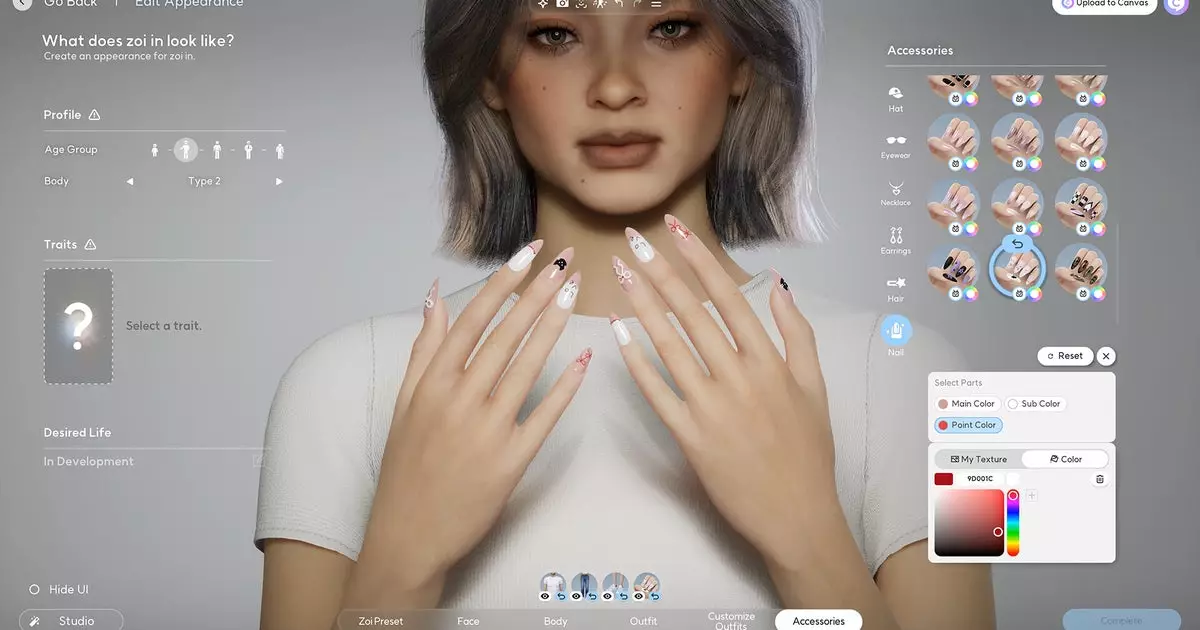In the ever-evolving landscape of life simulation games, the upcoming title InZoi is being positioned as a refreshing alternative to the juggernaut that is The Sims 4. As the gaming community eagerly anticipates its early access release on March 28th, the developers have created a buzz with their pricing model: a competitive $40 for the base game and a promise of free updates and downloadable content (DLC) until the game reaches its full version. This tactical move not only underscores the devs’ commitment to value but also raises interesting questions about consumer expectations and the true essence of early access gaming.
Revolutionizing the Early Access Model
Game Director Hyungjun Kim touts the free DLC strategy as a “gift to gamers,” but this assertion opens the door to a broader discussion about what early access should entail. The traditional view suggests that players are purchasing a work-in-progress, implicitly agreeing to provide feedback in exchange for the final product. Therefore, expecting free updates may seem like a reasonable request, though it poses an ethical quandary about the responsibilities developers have towards their early adopters. Are they truly offering a “gift,” or are they merely adhering to the unwritten rules of the gaming industry?
Furthermore, the gray area between updates and DLC introduces layers of complexity rarely addressed in marketing pitches. Consumers may feel misled if they perceive early access as a means to an end rather than an ongoing collaboration with developers. This can be particularly disheartening in an industry already fraught with concerns over monetization strategies.
Meaty Updates in an Expanding Universe
The roadmap for InZoi looks promising, boasting four significant updates packed with enhancements ranging from relationship improvements to the introduction of ghostly gameplay. The inclusion of a mod kit in the initial May update stands out as a crucial feature, aiming to cultivate a thriving community of creators. By inviting players to tinker further with the game, the developers are not only expanding the game’s lifecycle but also fostering a sense of ownership and investment among players.
However, one has to wonder—will the excitement around modding translate into a sustainable ecosystem? As the battle against inertia in player engagement rages on, InZoi needs more than just goodwill; it requires a robust support structure that nurtures and showcases the creative contributions of its player base.
Exploring New Realms of Gameplay
InZoi also diverges from the traditional life simulation path with its intriguing mechanics around death and the afterlife. The potential to play as a ghost, complete with the possibility of impacting neighborhood dynamics, underscores an exciting innovation. The whimsically dire concept of bad karma influencing one’s spectral adventures taps into both humor and deeper implications about living in a community.
This gameplay nuance could provide introspective moments for players, pushing them to consider the ramifications of their in-game choices beyond mere avatar simulations. To have sixteen different ways to die accentuates the depth and risk within the game, introducing an unwelcome yet fascinating dimension to decision-making. This refreshing take on life and death may ultimately set InZoi apart, inviting players to engage in a manner that is meaningful and reflective.
Reflection on Monetization Ethics
Even as the game garners excitement and praise, the discussion surrounding early access and monetization continues to simmer. The notion that additional cost may one day arise for updates or content is a sore point for many players—we’ve seen similar patterns in other games where the promise of free content turned out to be a piecemeal endeavor. Amidst the industry’s often cynical embrace of monetization strategies, the decisions made by InZoi’s development team can be viewed as both a risk and a necessity, reflecting the often tumultuous nature of game development.
As the gaming landscape grows and shifts, transparency will be key for InZoi to cultivate trust among its audience. Players want to feel their investments—whether monetary or emotional—are respected. By navigating the complexities of the consumer-developer relationship and establishing clear communication, InZoi can emerge as a beacon in the life simulation demographic, providing not only a compelling gaming experience but also a new example of ethical engagement within the industry.

